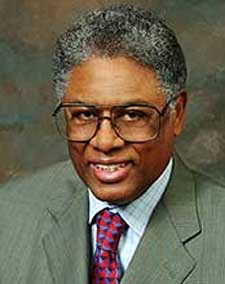Opinion

USA – -(AmmoLand.com)- Seventy-one years ago this month — in January 1948 — a black, 17-year-old high school dropout left home. The last grade he had completed was the 9th grade. He had no skills, little experience, and not a lot of maturity. Yet he was able to find jobs to support himself, to a far greater extent than someone similar can find jobs today.
I know because I was that black 17-year-old. And, decades later, I did research on economic conditions back then.
Back in 1948, the unemployment rate for 17-year-old black males was just under 10 percent, and no higher than the unemployment rate among white male 17-year-olds.
How could that be, when we have for decades gotten used to seeing unemployment rates for teenage males that have been some multiple of what it was then — and with black teenage unemployment often twice as high, or higher, than white teenage unemployment?
Many people automatically assume that racism explains the large difference in unemployment rates between black and white teenagers today. Was there no racism in 1948? No sane person who was alive in 1948 could believe that. Racism was worse — and of course there was no Civil Rights Act of 1964 then.
How then could there be this low unemployment rate, with virtually no racial difference? Racism is despicable. But that tells us nothing about what weight it has — compared to other factors — as a cause of particular social problems such as unemployment.
Perhaps the most widely condemned racism in the second half of the 20th century was that in South Africa under apartheid, when an openly racist government proclaimed white supremacy, and denied blacks basic human rights. Yet, even under such a regime, there were particular occupations in which black workers outnumbered white workers — even though it was illegal to hire any blacks at all in those particular occupations. Economics carried weight, even in South Africa under apartheid.
In the United States, what was unusual about 1948 was that, for all practical purposes, there was no minimum wage law in effect. There was a minimum wage law on the books. But it was passed in 1938, and a decade of high inflation had raised money wages, for even low-level jobs, above that minimum wage.
Among the effects of a minimum wage law, when it is effective, is that many unskilled and inexperienced workers are priced out of a job, when employers do not find them worth what the law specifies. Another effect of a minimum wage law is that it can lead to a chronic surplus of job applicants.
When an employer has 40 qualified applicants for 20 jobs, it costs the employer nothing to refuse to hire 10 qualified black applicants. But if he has no more than 20 qualified applicants, that is a different ball game.
The point here is that economic factors carry weight, and sometimes, under some conditions, those economic factors carry more weight than racism. Even in South Africa under apartheid.
In the United States, as the minimum wage rate specified in the law began to be raised, beginning in the 1950s, so as to catch up with inflation and then keep up with inflation, the minimum wage law became effective in practice once again — and a racial gap in unemployment rates opened up and expanded.
As a black teenager, I was lucky enough to be looking for jobs when the minimum wage law was rendered ineffective by inflation. I was also lucky enough to have gone through New York schools at a time when they still had high educational standards.
Decades later, when examining the math textbook used by some young relatives of mine, who were living where I grew up in Harlem, I discovered that the math they were being taught in the 11th grade was less than what I had been taught in the 9th grade.
The opportunities open to my young relatives in Harlem — and to other young blacks elsewhere — were not nearly as good as the opportunities open to me back in 1948. Many of the seemingly compassionate policies promoted by the progressives in later years — whether in economics or in education — have had outcomes the opposite of what was expected. One of the tragedies of our times is that so many people judge by rhetoric, rather than by results.

About Thomas Sowell
Thomas Sowell is a senior fellow at the Hoover Institution, Stanford University, as well as a prolific author including Black Rednecks And White Liberals. His website is www.tsowell.com. To find out more about Thomas Sowell and read his articles visit his website above.
The post Lessons From the Past, Minimum Wage & the Racial Gap In Unemployment appeared first on AmmoLand.com.
